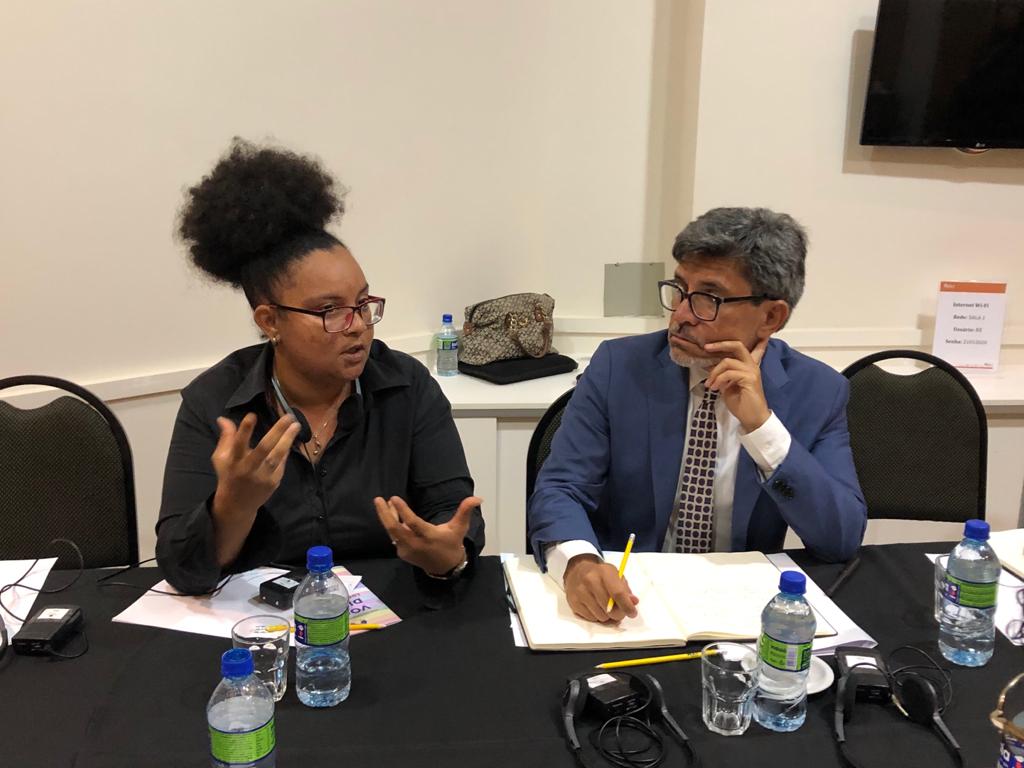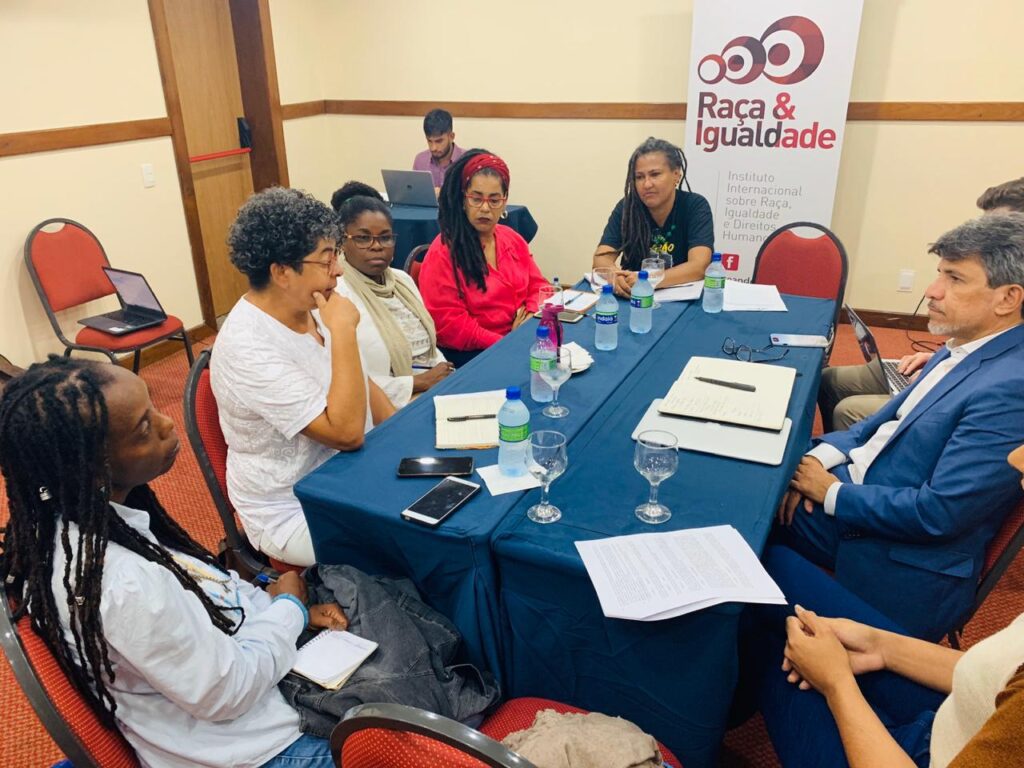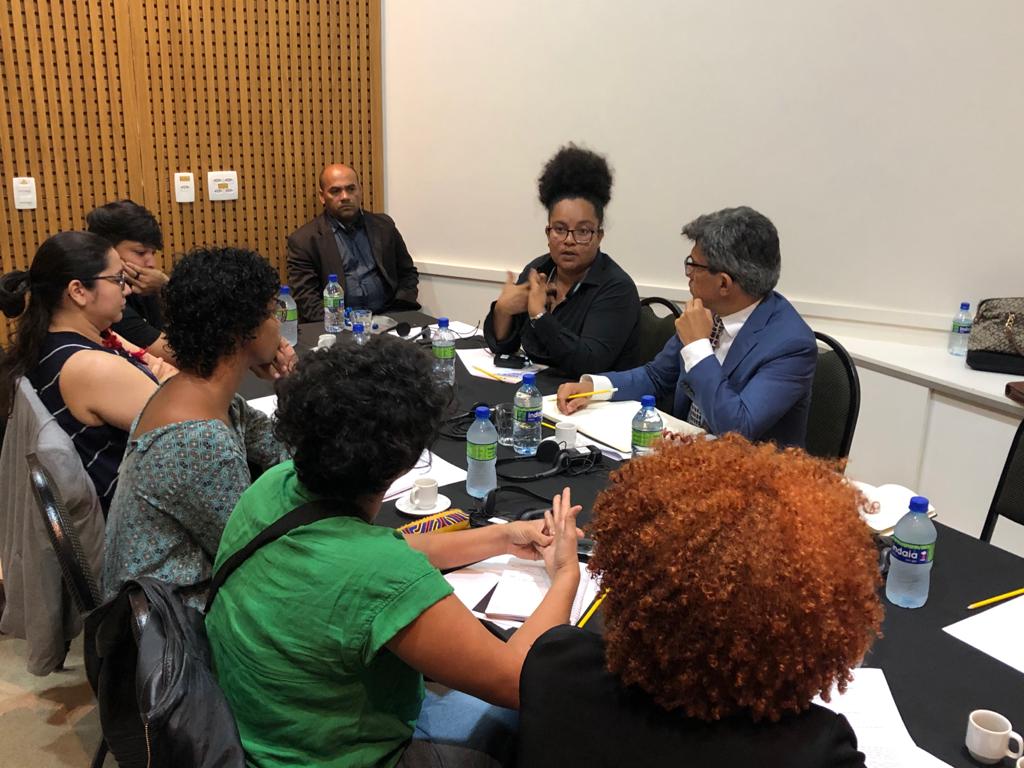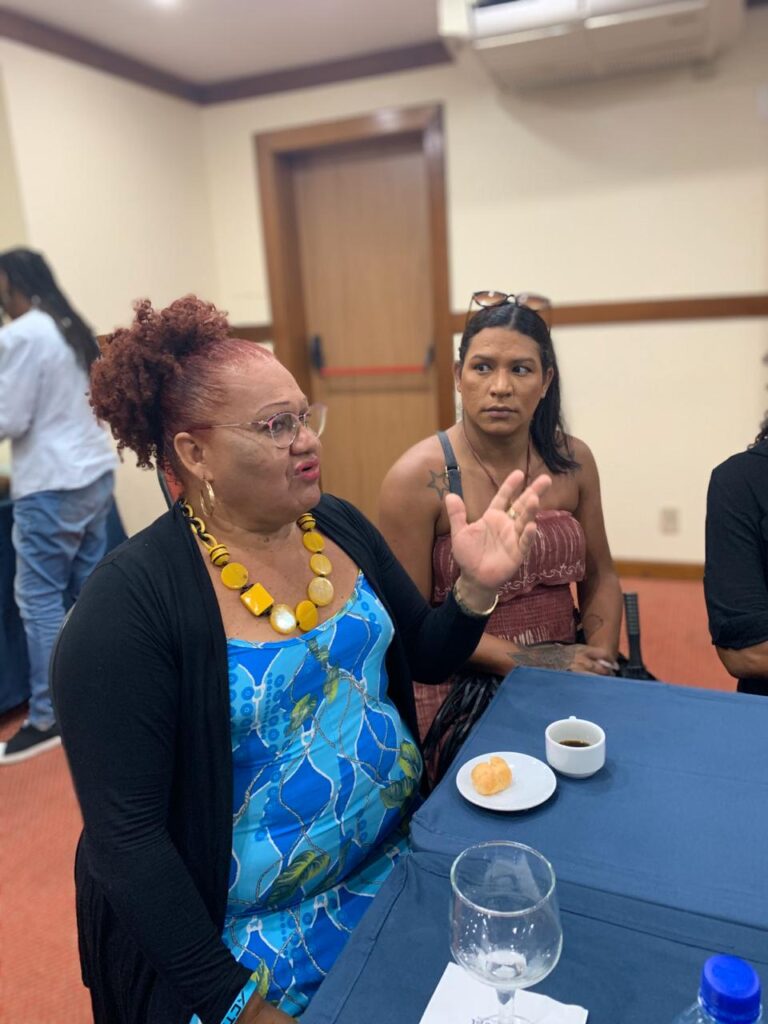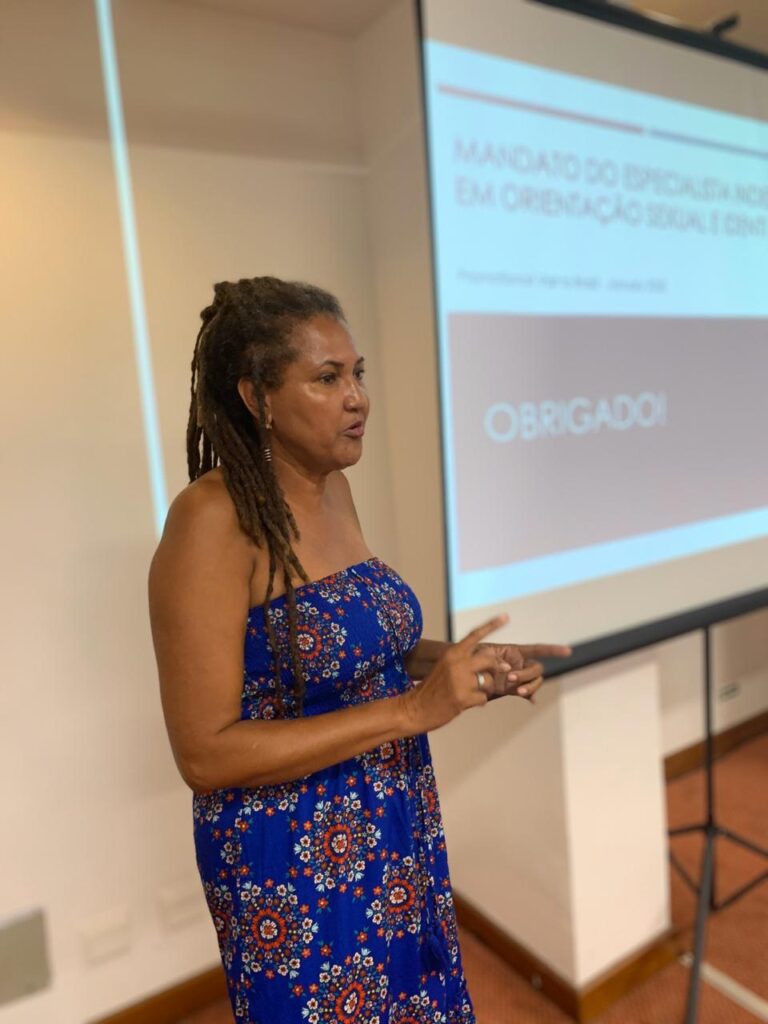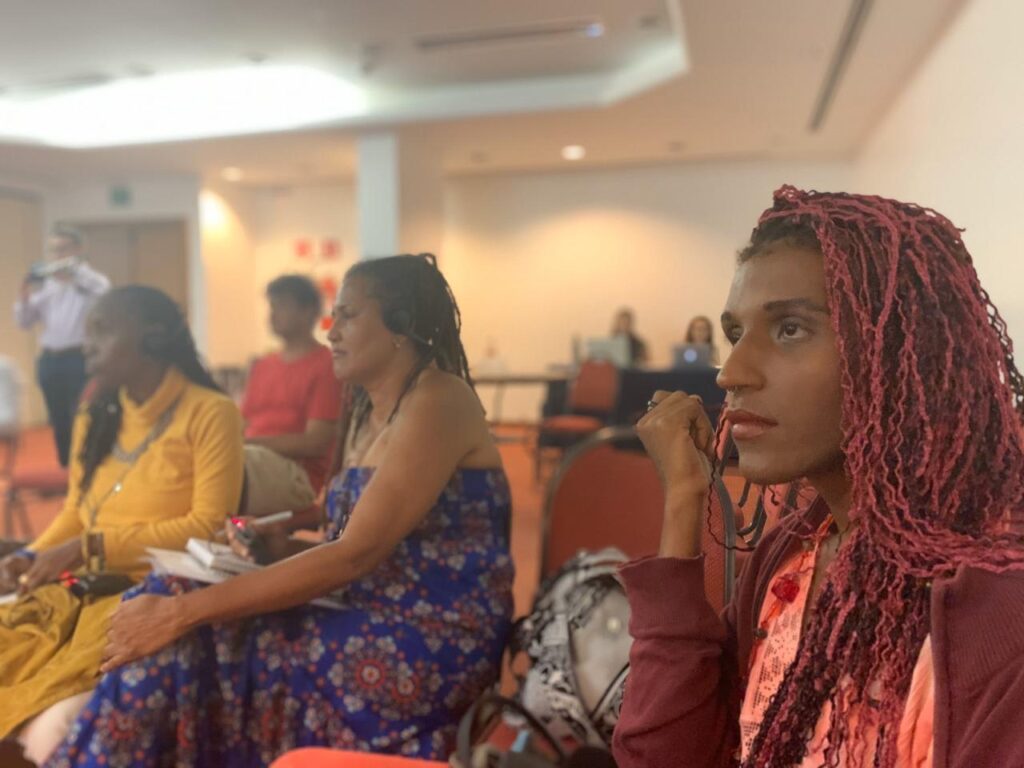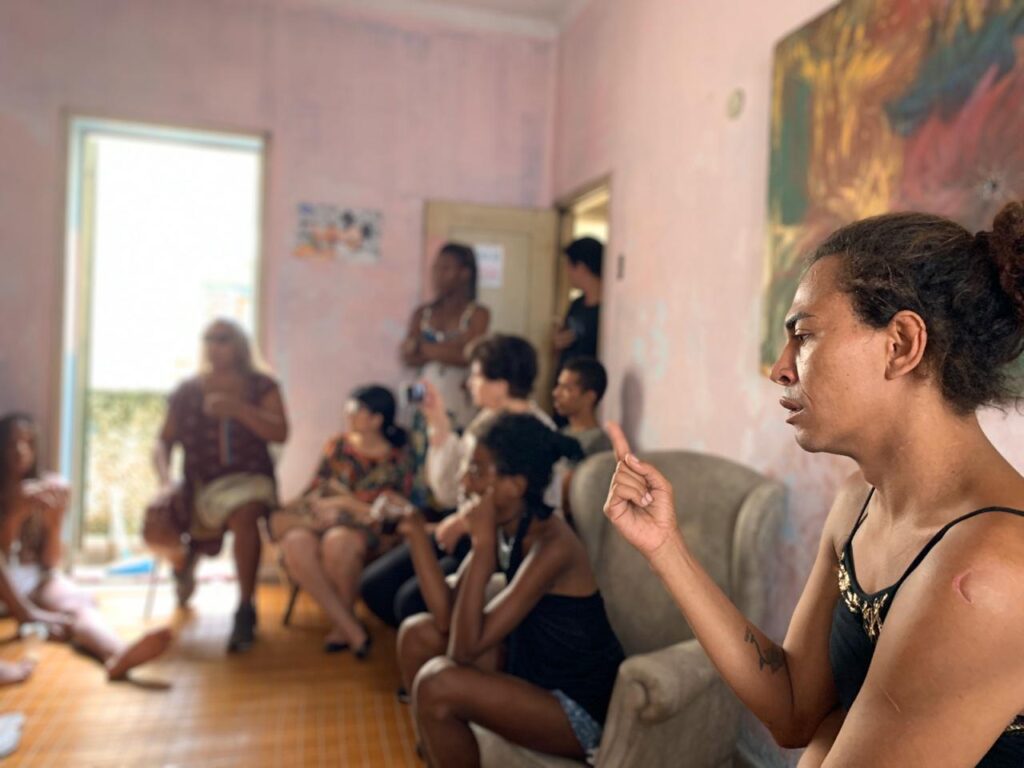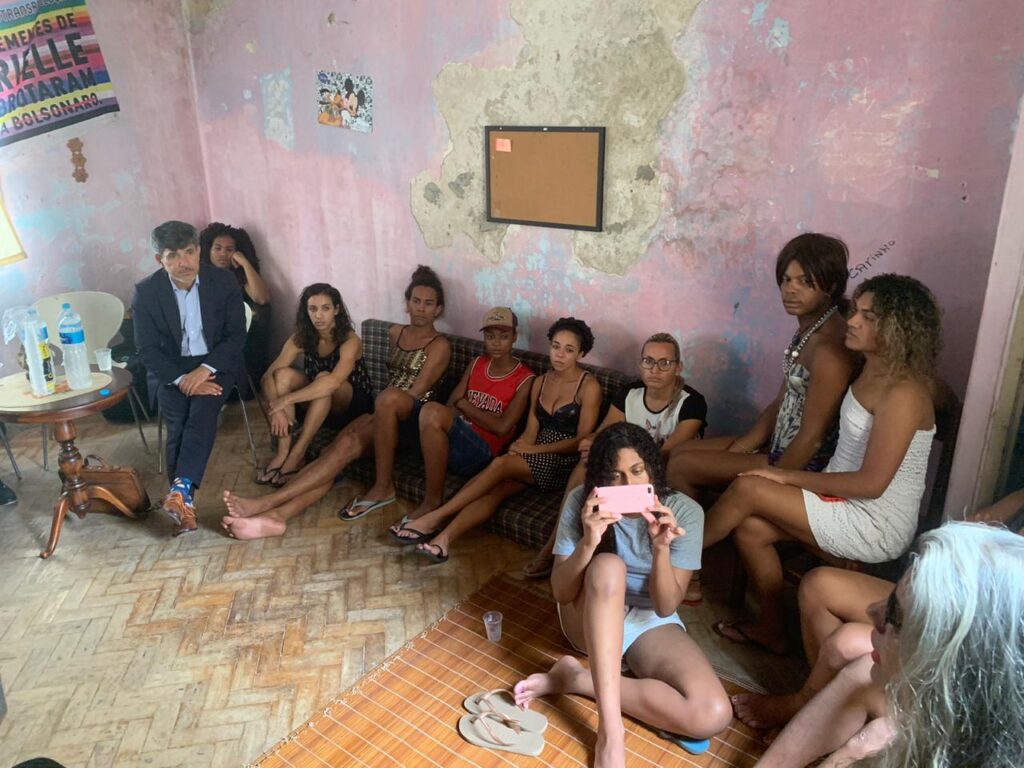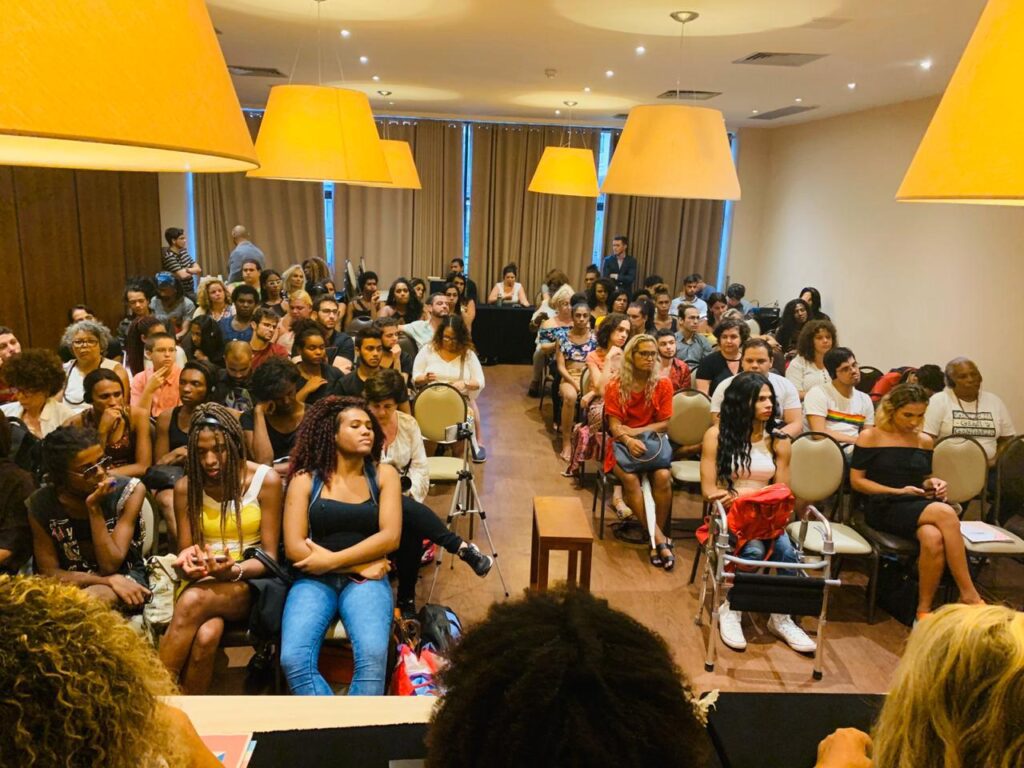UN Independent Expert visits Brazil on promotional mission co-organized by Race and Equality
Race and Equality co-organized a promotional visit of the UN Independent Expert on protection against violence and discrimination based on sexual orientation and gender identity, Victor Madrigal, to Brazil on […]
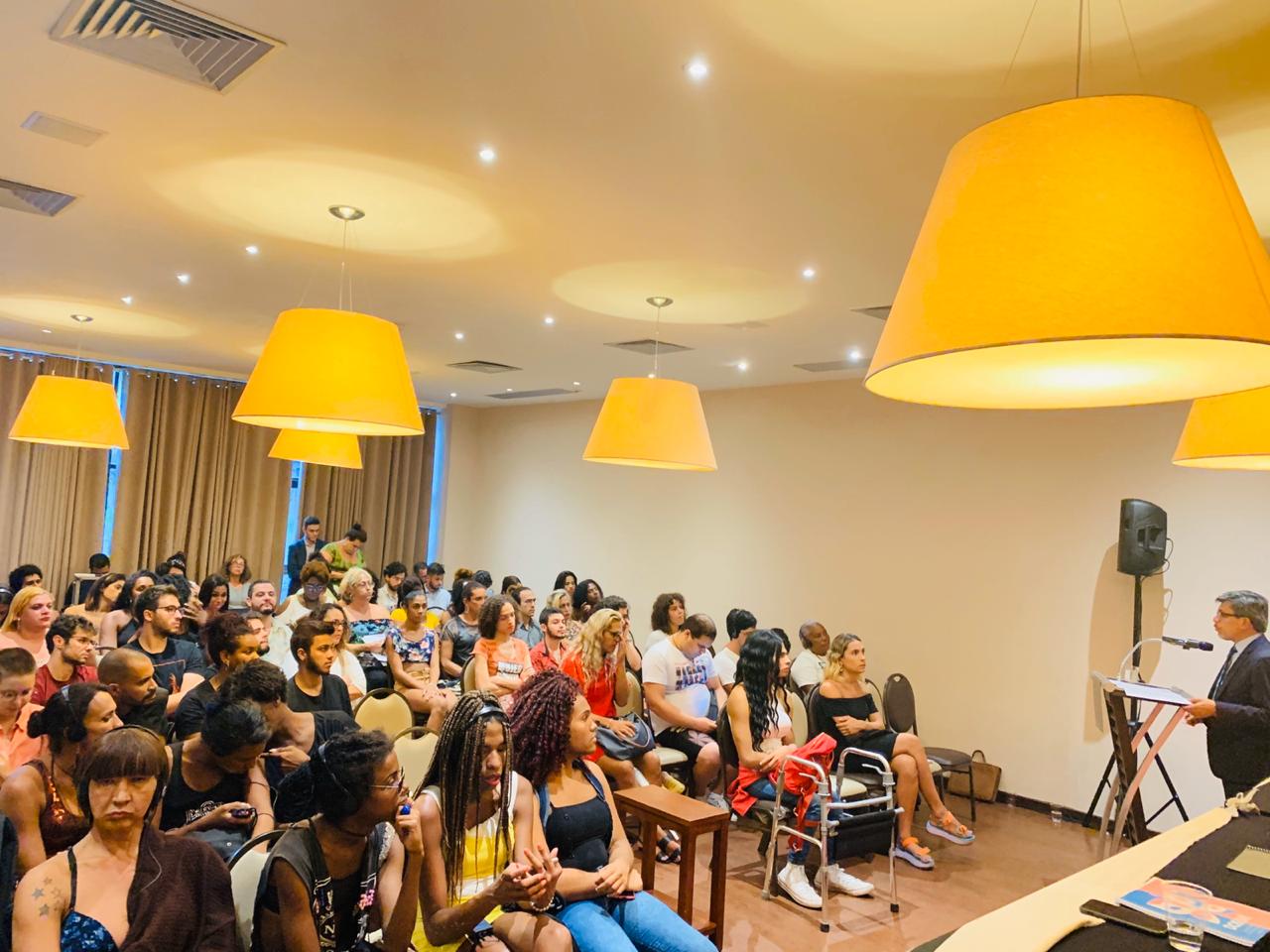
Race and Equality co-organized a promotional visit of the UN Independent Expert on protection against violence and discrimination based on sexual orientation and gender identity, Victor Madrigal, to Brazil on January 20-25, to speak with leaders, activists, and members of LGBTI civil society groups about his work, better understand their realities, and strengthen means of communication between them and the mandate.
During the visit, the Independent Expert participated in conversations with around 40 local LGBTI organizations, including over 100 different activists, between three different cities, and two public events. The visit took place in the cities of Brasília, Salvador, and Rio de Janeiro.
Within the meetings with civil society organizations in Brasília, activists expressed their different concerns facing LGBTI populations, in particular, highlighting the difficulties faced due to the invisibilization of LGBTI people under the current government, and the lack of discourse on this topic in federal spaces. Lesbian activists from the groups Coturno de Vênus and the Brazilian Lesbian Association also brought attention to specific issues such as family-organized violence and cases of “forced intercourse” that are commonly practiced throughout Brazil, as well as the increased violence against Afro-Brazilian women.
On January 22, these conversations continued when Madrigal traveled to Salvador de Bahia where he participated in a public event organized by Race and Equality. The event titled “Afro-LGBTI Resistance: Intersectional perspectives for the fight for human rights,” opened a space for different Afro-Brazilian LGBTI activists from Salvador to speak on the realities they face, not only the city, but in the Brazilian state of Bahia due to the intersectionality of race, sexual orientation, and gender identity. It is also important to note that Bahia contains the highest population of self-declared Afro-Brazilians out of any of the Brazilian states.
In this event, he presented the characteristics and scope of his mandate, indicating: “My mandate is designed to work with intersectionality. No person suffers discrimination from a single place as a gay man or woman, there are a number of identities that we gather in our body and there are multiple ways to express them. ” Likewise, he stated that the social structures that give people roles according to their genital configurations deny the individual freedom and identity of a human being.
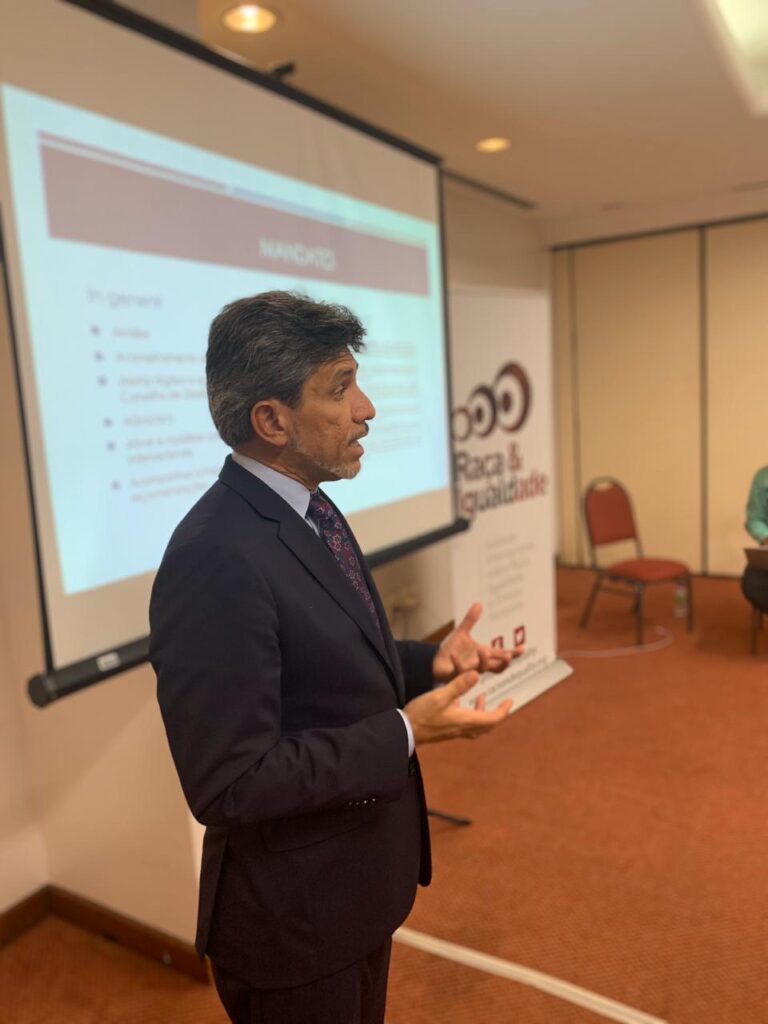
“The mandate is not interested in the word gender, we are interested in the recognition that within societies exist structures that grant roles to people according to genital settings, and those roles are creating the denial of individual freedom,” added Victor Madrigal
Likewise, Madrigal also held conversations with activists and members of Afro-LGBTI civil society organizations in Salvador, gaining a deeper understanding of the reality of Afro-LGBTI people in this region. Throughout the country, the Afro-LGBTI population is overrepresented in many statistics on violence, murder, homelessness, and HIV infections. Activist Kukua Dada affirmed this, explaining that a blonde, white trans woman is more “passable” than any black trans woman, thus having a lower probability of suffering from violence.
In Bahia, faith communities from African religions, which historically have welcomed the LGBTI community, have also suffered from increased religious intolerance. Meetings were held with religious leaders Washington Dias of the National Afro-LGBTI Network and Afro-trans activist Thiffany Odara, who reported difficulties in maintaining their places of religious practice, called “terreiros,” and pointed out discrimination from public officials who did not give support to communities led by LGBTI people as they did for other “terreiros.”
The visit was concluded in Rio de Janeiro, where, in light of Brazil’s Trans Visibility month, more focus was given to the local travesti and trans populations. The events began on the 24th with a meeting at Casa Nem, a safehouse for trans and travesti people, living in the city. The Independent Expert listened to the stories of how various trans men and women arrived at the house and how it has helped them since.
Similarly, in Salvador, a meeting was held with Casa Aurora, a trans safe house that began its work within the last year. In both of these spaces, the houses seek to provide shelter for the homeless trans population, providing different programs such as: socio-educational activities, psychological and psychiatric services, community engagement, and much more. Both houses are very actively engaged on social media and try to bring visibility to the importance of their work as much as possible.
Indianare Siqueira, leader of Casa Nem reiterated the importance of specialized shelters for the LGBTI population, which is subject to more violence and discrimination when trying to access or live in public shelters. For this reason, the shelters try to not only provide housing, but also a space for social interaction, which aims to make residents feel more accepted, thus helping increase their self-esteem and regain their autonomy.
Later that evening, the second public event occurred with great reception by local activists and LGBTI community members. As made clear by its title, “Visibility in times of hate: Challenges for the inclusion of trans people in the multilateral human rights agenda,” the event aimed to discuss measures to remove barriers that currently exclude trans people in different spaces.
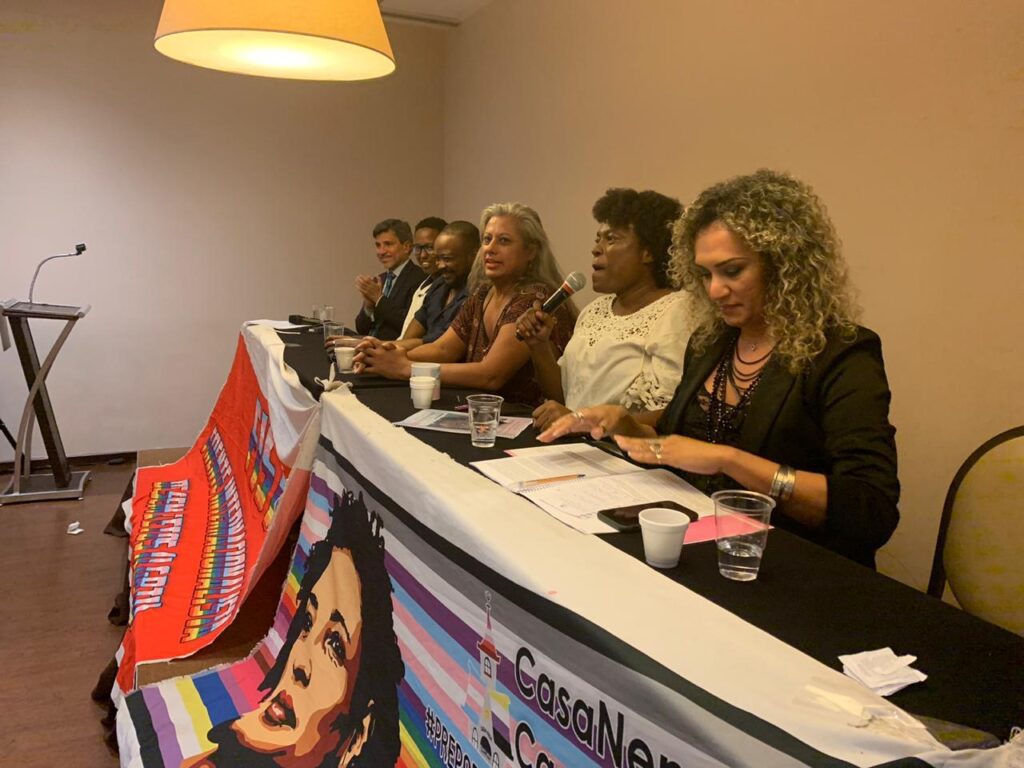
Panel participants reported that they found it difficult to access general and specific public services for transgender people, even when guaranteed by law, due to the prejudice of the responsible public agents. They also pointed out that there is bureaucratization and a considerable financial burden for the legal recognition of gender identity, which makes it difficult for many individuals to access this right. Additionally, leaders such as Alessandra Ramos from Instituto Transformar, also drew attention to the contradiction of their excessive visibility in public spaces, since the majority of the murder of trans people in the country takes place on the streets, and the way they are being made invisible by the absence of laws and public policies that address their demands.
During his speech, Madrigal mentioned the paradoxes that currently prevail around the world in relation to the questioning of LGBTI lives. “I am witnessing a paradox in all parts of the world in which advances in the protection of the rights of LGBTI people are accompanied by a deluge of positions that question the lives of LGBTI people,” he comments.
He also referred to the large number of policies that criminalize and make the existence of LGBTI lives in a large number of countries in the world invisible. Madrigal indicated that the conclusions of his work repeatedly reach the same place, and that is that structural processes in society perpetuate the notion that certain genital configurations determine the role that a person has in society, which is why, this principle of primary order has been instrumentalized through a series of mechanisms that the expert described as demonization, criminalization and pathologization or in other words “sin, crime, and disease.”
The following day the floor was given to civil society groups to express their concerns on an array of topics surrounding public health, education and labor, racial discrimination and violence, among others.
The current government has demoted the STI and HIV prevention department, suspended funds for HIV prevention campaigns that target the LGBTI population specifically, and has started a new awareness strategy based on encouraging sexual abstinence. The government has also stopped collecting disaggregated HIV data for certain populations, such as lesbian and bisexual women and trans men.
To conclude the public event in Rio, Madrigal left audience members with these important unifying words, “The state must make this recognition and this protection…This mandate that was created in the sense by the work of thousands of grassroots organizations in more than 170 countries … every day many people around the world are killed, beaten, tortured, mistreated, excluded from health, work, housing, for being who they are, and as a result of the people they love or desire. That is the work that we jointly carry out, the work that is also important for me to be able to connect with the international mechanisms that operate at the United Nations level.”
Race and Equality fully supports the work of the current mandate, and is finishing a report on the human rights situation of Afro-LGBTI people in Brazil that will be sent to the mandate in the coming months. We remain committed to working with our Brazilian partners on these issues and helping them bring more visibility, not only to these populations nationally, but internationally as well. A special thanks all of the organizations in Brazil who helped make this visit a success.
For more info about the visit please check out the following links below:
Apresentação do Mandato do Especialista Independente da ONU em Orientação Sexual e Identidade de Gênero
IE SOGI Mandate
Twitter IE SOGI
Instagram IE SOGI
